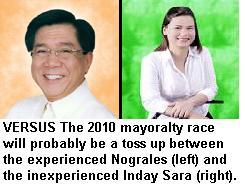Meet the young and smart Professor Ian Stain. He’s a newly minted Ph.D. in History. Immediately after he completed his doctoral studies, the Dean of College of Arts and Sciences in one of the prestigious universities in the metro invited him to teach History and Government. Prof. Ian Stain obliged.
Today is his first day of teaching. A believer of the dictum that “first impression is lasting,” Prof. Ian Stain wants to impress his students. Wearing his everyday suave look—brush-up hairdo, neatly ironed long sleeves, sleek black slacks and shiny black leather shoes—Prof. Ian Stain entered the room, which is already full of freshmen students.
After putting his things on the table, Prof. Ian Stain looks at his wristwatch. It’s 7:20 am, ten minutes before his class starts. He’s proud of it, for he wants to have an unbroken record of not being late in coming to class.
“Good morning class,” Prof. Ian Stain greets his students.
“Good morning Sir,” the students greet him back in chorus.
The Dean told him that he would be handling an honors class. Prof. Ian Stain can’t help but be glad to see a group of intelligent students; all are seemed eager to learn from him the proud history of the Philippines. On this day, Prof. Ian Stain intends to quiz his students, trying to confirm if he is indeed handling the university’s cream of the crop.
“Who is the first female to be elected as President of the Philippines?” Prof. Ian Stain unleashes his opening salvo.
Everybody is silent. A few seconds passed, only a faint chitchat pervades the room. Obviously, the students are taken aback. They don’t expect the professor to ask something like that. It is the first day of class after all. And it’s usually devoted to orientation—how their grades are computed, how many absences they are allowed to have and a host of other mundane things. Elementary as the question may be, the abruptness of Prof. Ian Stain’s inquiry seems to erase everything the students had in their mind.
“Who is the first female to be elected as President of the Philippines?” Prof. Ian Stain repeats his question. A sign of impatience is becoming obvious in his voice.
Finally, a bespectacled student named Aries raises his hand. “Yes, you’re raising your hand,” Prof. Ian Stain says, pointing to the sixteen-year old boy.
“Sir, Corazon Aquino is the first female to be elected as President of the Philippines,” Aries says confidently.
Behind Prof. Ian Stain’s charming looks is an intolerant monster. He has little patience for those who cannot answer his questions right.
“What, have you no brain son?” the Professor bursts into anger. “You sit down. Let me refresh your memory. Cory Aquino, although she’s the first female President of this country, was not elected. She became President because of People Power Revolution or Edsa I,” says Prof. Ian Stain, apparently disgusted over his student’s ignorance.
“I hope you will get it right this time. Again, who is the first female to be elected as President of the Philippines?” Prof. Ian Stain asks for the third time.
After a minute or so, another student named Ismael raises his hand. “Yes please,” Prof. Ian Stain acknowledges Ismael.
“Sir, Gloria Macapagal-Arroyo is the first female to be elected as President of the Philippines. She assumed her post in 2001,” says Ismael, hoping he had it right.
With Ismael’s answer, Prof. Ian Stain’s mood is ruined. “Can you not get your facts straight?” Professor Ian Stain asks his students sarcastically.
Fuming, Prof. Ian Stain releases a torrent of condescending remarks. “What kind of brain do you have?” he asks rhetorically. “The size of Pandaca Pygmea? And in case you don’t know what it is, it’s the smallest fish in the world.”
By now Prof. Ian Stain is disappointed. He thought he’s handling a group of first-rate students. Then out of despair he goes on to lecturing his students who are now shivering in fear.
“Yeah, you’re right to say that GMA is the first female to be elected as President of this country, but for Christ’s sake, she’s not elected in 2001. FYI, in 2001 GMA just fill in the vacuum left by Erap after he was booted out of office via Edsa II. The correct answer, poor young man, is that GMA is the first female to be elected as President of the Philippines, and that she was elected in 2004, not 2001.”
“Now, am I understood?” asks Prof. Ian Stain. Everybody says yes, except for Dick whose “no” answer Prof. Ian Stain hears loud and clear. “Excuse me, did you just say no?” asks Prof. Ian Stain, surprised by the boldness of Dick. “Yes, Sir,” says Dick.
“Oh, can you defend your answer, brave young man?” Prof. Ian Stain challenges Dick. “Of course, I can,” Dick says.
“Have you no brain, Professor?” Dick begins. “Where have you been all these days? Lest you be consigned to eternal damnation, let me rescue you from stupidity. GMA is not the first female President of the Philippines. Nor was she elected in 2004. If she’s acting like one, it’s because of Garci.”
At that moment, Prof. Ian Stain knew he’s indeed handling the university’s cream of the crop. But wasn’t he warned before, “Be careful what you wish for; you just might get it”?

 If the
If the